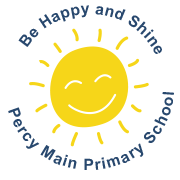Personal, Social, Health and Economics
Statement of intent
At Percy Main Primary we are committed to providing a broad and balanced curriculum that promotes pupils’ spiritual, moral, cultural, mental, and physical development, and prepares them for the opportunities, responsibilities, and experiences of later life.
We believe that a strong PSHE education is important to help our pupils develop into well-rounded members of society, who can make a positive contribution to their community.
The vision for pupils, staff and other members of the school community is to always look to achieve our personal best in every aspect of school life.
Relationships and Health Education
Statement of intent
At Percy Main Primary, we will provide age-appropriate relationships and health education (RHE) to all pupils as part of the school’s statutory curriculum. Our school aims to assure parents and pupils that all aspects of RHE will be delivered in a safe space, allowing time and compassion for questions at a level that every pupil understands. Sensitive topics relating to RHE will be delivered in a sensitive manner as part of a whole-school approach where parents and teachers work in partnership.
RHE is compulsory in all primary schools in England. The key topics applicable for all key stages have been carefully planned in consultation with responses from parents, young people, schools and experts. Parents are given the opportunity to discuss this policy at any time and staff will be provided with accurate training and further resources to deliver lessons to pupils.
We understand that pupils must be provided with an education that prepares them for the opportunities, responsibilities and experiences of adult life. A key part of this relates to relationships education. Primary schools also have the option to decide whether pupils are taught sex education.
Relationships education focusses on giving pupils the knowledge they need to make informed decisions about their wellbeing, health and relationships, and ensures can talk to a trusted adult if there is anything worrying them. Health education focusses on equipping pupils with the knowledge they need to make informed decisions about their own health and ensures they receive factual information about the changes they will experience emotionally and physically during puberty.
We understand our responsibility to deliver a high-quality, age-appropriate and evidence-based RHE curriculum for all our pupils. This policy sets out the framework for our relationships and health curriculum, providing clarity on how it is informed, organised and delivered.
We understand our responsibility to deliver a high-quality, age-appropriate and evidence-based relationships, sex and health education (RSHE) for all our pupils. This policy sets out the framework for our RSHE curriculum, providing clarity on how it is informed, organised and delivered. Any sex education included within the curriculum consists of age-appropriate content which covers how babies are conceived and how they are born. Sex education does not go above and beyond the focus of reproduction. State-funded primary schools are also required to teach health education.




